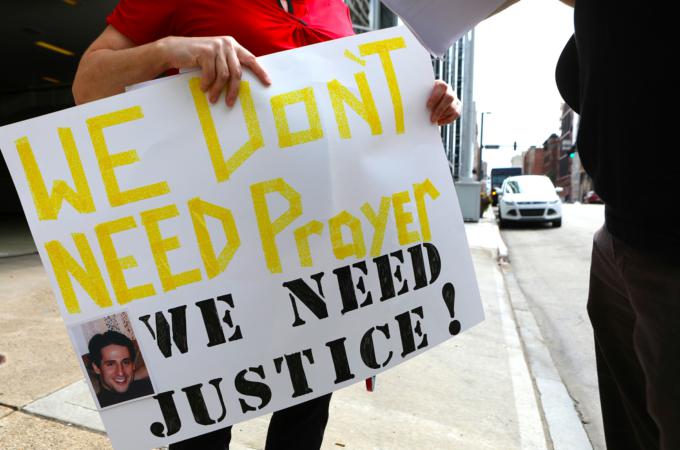A beast with many heads
In the rush to "fix it," or at the very least "contain it," many have tried to identify the roots of the current crisis we are suffering in the Church. Since the release of the absolutely horrifying Pennsylvania Grand Jury report, all kinds of explanations and theories have surfaced. Everyone seems to have an answer to the most central question: What is the source of this widespread abuse and corruption?
The list of culprits is long and varied: poor formation, weak leadership, a corporate mentality, aggressive secularism, a culture of denial and silence, the sexual revolution, a homosexual network within the Church, mental illness, the ideal of the celibate priesthood, clericalism, and yes, even a communist plot to infiltrate the Church. The crisis has been characterized as moral, spiritual, organizational, sexual, and more. Curiously, these explanations, (and those who are voicing them), seem to be garnering proponents and opponents, and causing further division in a Church that is already reeling.
Do we really believe that there is a single issue at the root of the evil that has, once again, come to light? Are we naïve enough to think that there is a single, silver bullet that will magically solve everything? Are we so very eager to advance our own perspectives that we are unwilling to consider the possibility that this beast has more than one head, that the real answer to what has gone wrong just might be "all of the above"?
This crisis is a beast with many heads. Like the beast in Revelation 13, it is ready to devour us. And if we are willing to declare victory when one head is severed, or one thrashing tail is stilled, devoured is what we will be. We must hear the whole truth and commit ourselves to acting on it. That will mean a long and nauseating look into the mirror. It will mean resignations and legal recourse, as well as sackcloth and ashes and prayer and fasting for forgiveness and healing.
G.K. Chesterton was once asked the question, "What is wrong with the world today?" His famous response was, "I am." Perhaps we Catholics should consider embracing Chesterton's view. It is true that there are genuine victims and perpetrators of sexual abuse and harassment. There are "good guys" and "bad guys" in this catalog of abhorrent incidents. But we all suffer the consequences of these sins, we are all shaken by them, because the Church is one body, one people, one flock.
Our God is both merciful and mighty. He welcomes the sinner and gathers the lambs. Still, there is a difference between "a field hospital for sinners" and a den of iniquity. We must wisely discern that difference and live in the tension that accompanies it.
I wish I could say that this is the very worst the Church has ever been. Anyone who has read even a bit of Church history knows otherwise. There has been terrible scandal in the Church before, even scandal involving sexual abuse and cover-ups, corruption and poor leadership. God, however, loves us even when we grieve him. Remember that Christ died for us even when we were far from him. That distance, the one we choose to place between ourselves and God, is why he died at all.
It is hard to have hope or faith or love in times like ours. That is when however, we need them most. It is also how we know beyond a doubt that these three -- faith, hope, and love -- are the things that last. Our witness to Christ alive in us has been severely damaged, but not irreparably. Fallout from these scandals and the failures to address them will dog us for a time, perhaps a very long time. But God is faithful, especially when we are not, and even when we make the mistake of thinking that we can tame or control or even slay a beast with many heads apart from his grace.
- Jaymie Stuart Wolfe is a Catholic convert, wife, and mother of eight. Inspired by the spirituality of St. Francis de Sales, she is an author, speaker, and musician, and serves as a senior editor at Ave Maria Press. Find Jaymie on Facebook or follow her on Twitter @YouFeedThem.



















